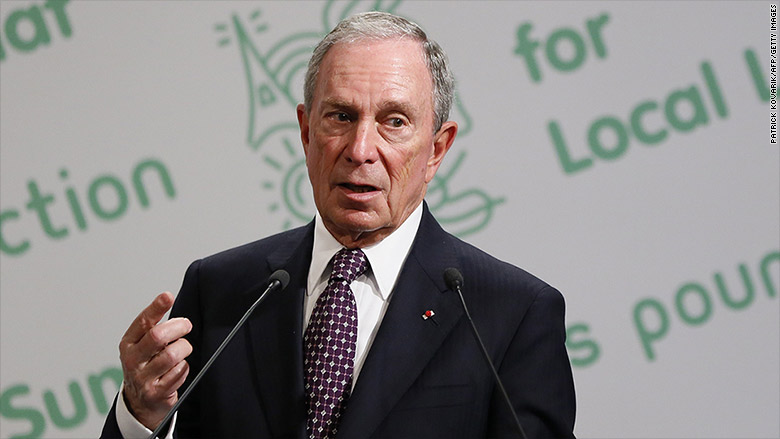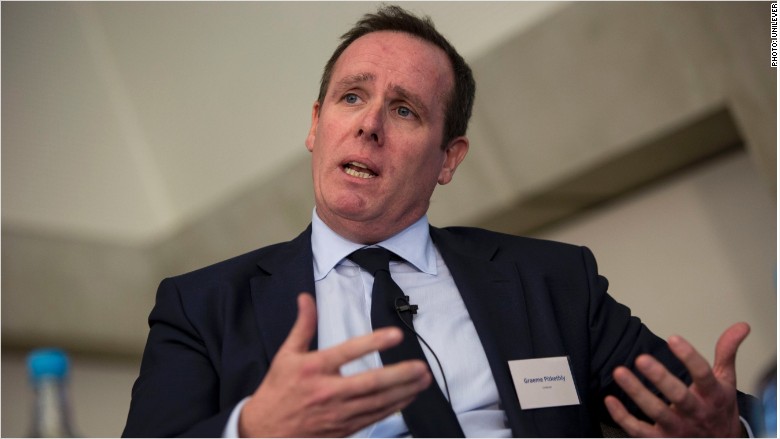
Graeme Pitkethly is Unilever's chief financial officer and vice chair of the Task Force on Climate-related Financial Disclosures. The opinions expressed in this commentary are solely those of the author.
Climate change is affecting companies through the direct impact of steadily rising global temperatures and the policies that governments around the world adopt in response.
If markets are to operate efficiently, we must be transparent about that to help investors evaluate companies and make better decisions for the long term.
Information is king, and access to an increasing amount of comparable reporting data promotes better pricing of climate related risks and opportunities, and more informed investment, credit and insurance underwriting decisions. It enables suppliers and consumers to assess a company accurately and allows management teams to navigate the scenarios that their companies face.
In 2015, the Governor of the Bank of England and Chair of the Financial Stability Board, Mark Carney, said that climate change could pose a risk to the stability of the global financial system.
We know climate change creates a potentially huge cost for future generations, but we don't currently have the incentive to fix it. As Carney put it: "The horizon for monetary policy extends out to two to three years. For financial stability it is a bit longer -- about a decade. So once climate change becomes a defining issue for financial stability, it may already be too late."
Now is the time to act
For us, it's clear. We need to be considering now how to prepare ourselves, not leaving it to our successors.
Until this point, we have lacked a clear framework to help companies consider and disclose climate-change-related financial factors. This is why we, alongside peers from other sectors, were keen to participate in the Task Force on Climate-related Financial Disclosures, convened by Carney and chaired by Michael Bloomberg.

The diverse team represents a raft of sectors, with a combined market capitalization of over $1.5 trillion and assets of over $20 trillion. We worked together to develop recommendations for voluntary, consistent, financial reporting on climate change. We designed them to be as easy as possible to adopt across sectors and geographies.
Related: Business pledges support for Paris agreement
It is, for sure, just a matter of time before most investors -- as well as consumers and future employees -- actively ask for this information from companies. In many cases, this is already happening. We know, for example, that transparency is increasingly important to consumers.
They want to know and trust the companies behind the brands they buy, and understand their purpose and values. We have already seen the impact of this at Unilever (UL), where our most sustainable brands are now growing over 50% faster than the rest of the business.

Sustainable business will win
As further evidence of the direction of travel, more than 1,200 companies have committed to implement a price on carbon. And 400 investors with $25 trillion of assets under management are participating in the Investor Platform for Climate Action. Companies that operate sustainably will be rewarded. Not least because they will be the ones most prepared for the road ahead.
We also shouldn't forget public companies are already obliged to disclose material risk. Climate change is exactly that. One of the benefits of the new reporting recommendations is that they will encourage senior management to engage with climate-related issues. After all, how can you manage a risk that you aren't measuring?
Today our report is launched, and now comes the crucial stage -- adoption.
Climate change presents significant challenges that businesses need to adapt to. At Unilever and the other hundred companies that have endorsed the task force's recommendations, we will be working toward adopting them and we encourage others to do the same.
Better information has driven innovation, change and efficiency gains time and again across industries. Let's work together to promote greater transparency and let better, comparable, consistent information work for us all.


